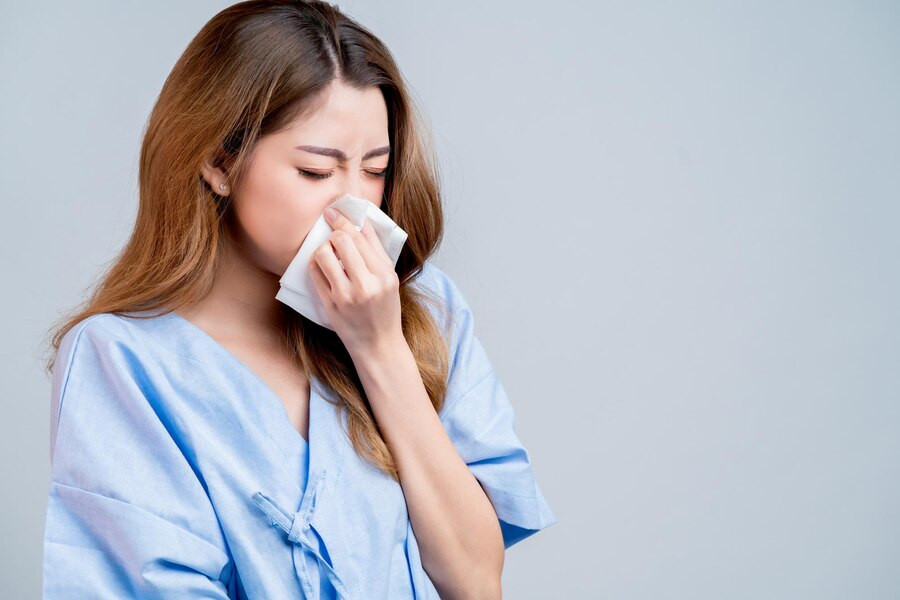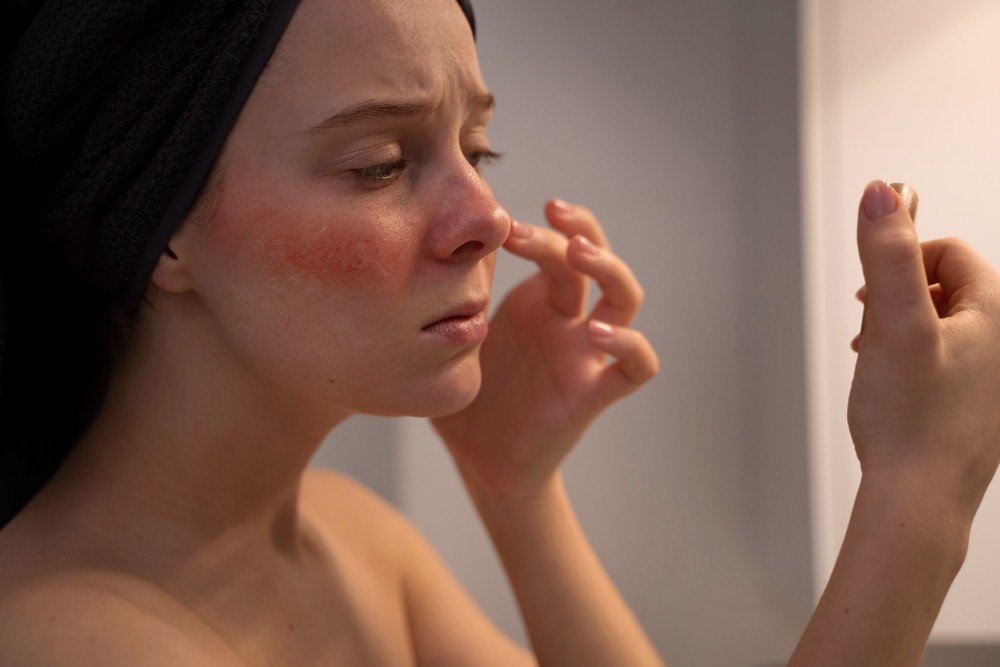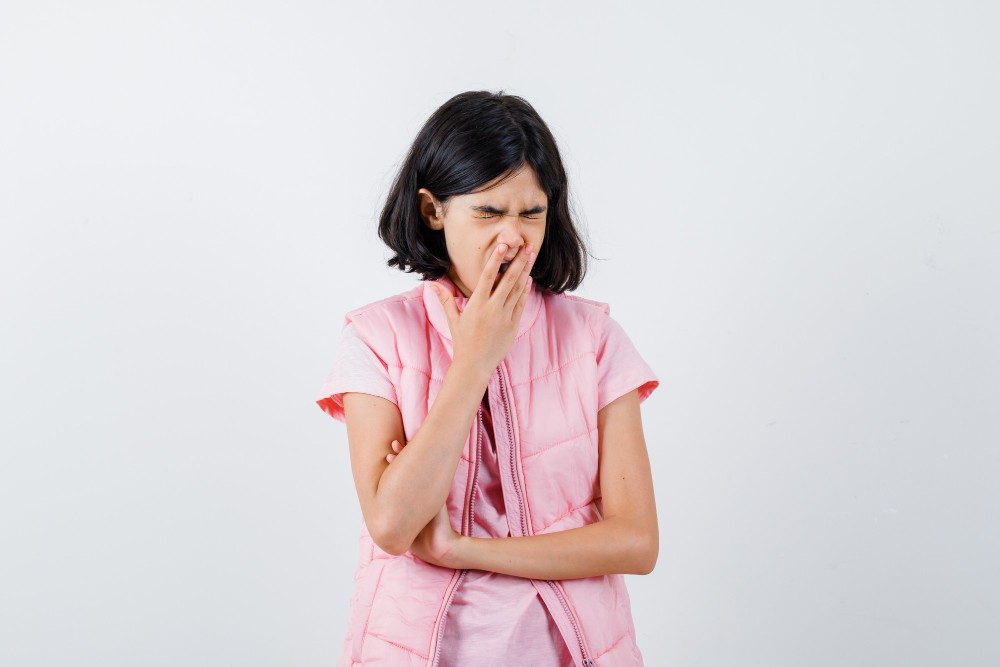In medical terminology, an itchy sensation in the nose is referred to as nasal pruritus. It can be triggered by allergic rhinitis, food allergies, sinusitis, or nasal polyps.
Nasal itching occurs due to the release of histamine and the immune system's response to irritants or allergens. Getting an early diagnosis is crucial for identifying the underlying cause, allowing it to be addressed and treated as soon as possible.
How to treat an itchy nose
There are several methods for relieving the itchy sensation in the nose, including:
Washing your nose
Washing the nose with NaCl solution has a variety of benefits, including moisturizing the nasal passages, relieving postnasal drip, easing nasal congestion, reducing sneezing, preventing nosebleeds, and treating itchy sensations in the nose.
Studies indicate that washing your nose with NaCl solution can effectively alleviate allergy symptoms by loosening mucus and dirt, allowing you to breathe easier, and relieving itching inside your nose.
Avoiding allergy triggers
Allergic rhinitis is an inflammation caused by an allergic reaction to specific substances such as pollen, dust, animal dander, mold, chemicals, or smoke. Allergic rhinitis frequently causes nasal itching, nasal congestion, sneezing, and a runny nose.
To treat allergic rhinitis symptoms, avoid allergens by wearing masks outdoors, keeping windows and doors closed to reduce dust and pollen exposure, and using air conditioning with filters.
Using a humidifer
A humidifier can help reduce nasal itching caused by hot weather. The use of a humidifier helps to increase the humidity of the air in the room, reducing the likelihood of nasal irritation and itching.
Staying hydrated
Drinking enough fluids can keep your body hydrated and relieve nasal dryness, particularly if you have a cold or sinus infection. Dryness in the nose can make mucus thicker, make it more difficult to expel, and cause an itchy sensation in the nose.
Drinking more fluids can help thin the mucus, making breathing easier. The amount of fluid to drink may differ depending on age, gender, physical activity, and health status. However, as a general rule of thumb, adults should drink about 8 glasses of water per day.
Taking medications
Antihistamines are a type of medication that is commonly used to relieve allergy symptoms like nasal itching. Antihistamines work by inhibiting the effects of histamine, a chemical released by the immune system in response to allergens. Antihistamine nasal sprays are effective at relieving itching in the nose. These nasal sprays can be bought over the counter and are relatively simple to use.
If the itching in the nose persists or is accompanied by other concerning symptoms, consult a doctor right away for further evaluation. Itching in the nose can also be a symptom of chronic sinusitis or nasal polyp, which require specialized medical attention. The doctor can help in diagnosing and planning the best treatment for your condition.
Have other questions about allergies and symptoms? You can make use of the consultation features that are available in the Ai Care application by downloading the Ai Care application from the App Store or Play Store.
Looking for more information about other diseases? Click here!
- Sean Edbert Lim, MBBS
Claire Sissons (2023). Why is my nose tingling inside?. Available from: https://www.medicalnewstoday.com/articles/321664
Kristin Hayes, RN (2022). Nasal Pruritis: What Does It Mean When Your Nose Itches?. Available from: https://www.verywellhealth.com/nasal-pruritus-itchy-nose-5272355
Brandon Peters, MD (2023). How To Use Saline Nasal Sprays. Available from: https://www.verywellhealth.com/saline-spray-snoring-allergies-3015306
Harvard Medical School (2020). Allergic rhinitis: Your nose knows. Available from: https://www.health.harvard.edu/diseases-and-conditions/allergic-rhinitis-your-nose-knows
Kristeen Moore (2022). Humidifiers and Health. Available from: https://www.healthline.com/health/humidifiers-and-health
NHS UK (2023). Antihistamines. Available from: https://www.nhs.uk/conditions/antihistamines/











